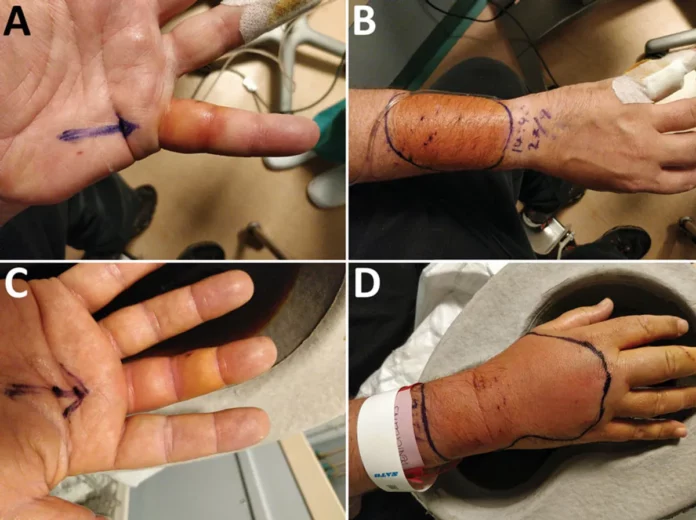Feral cat scratches and bites can be a health risk because they are reservoirs of zoonotic infections. One example is the case of a British man who was bitten by a stray cat and contracted an extensive soft tissue infection. The cause of the disease was a bacteria that hadn’t been described before.
He was 48 years old and came to the ER in 2020 with a swollen and painful hand. He was bitten by a feral cat several times, eight hours before his visit. The doctors cleaned his wound, injected him with tetanus, and prescribed antibiotics. However, he returned after 42 hours with an intense infection in his forearms, right middle finger, and left pinky finger. Doctors cleaned the area. Moreover, they surgically removed the damaged tissue and administered IV antibiotics. He was in full recovery after 5 days of oral antibiotics.
The doctors were eager to identify the cause of the pathogen through sequencing and biochemical profiling. Surprisingly, they found a species of bacteria they had never seen before. Belonging to the genus Globicatella, it is a gram-positive bacteria resembling Streptococcus.
When whole genome sequencing was done, it revealed a strain close to G. sulfidifaciens. Moreover, the two species were different only by 20%. Moreover, the latest addition to the species is Globicatella.
The authors said,
[This suggests] a distinct and previously undescribed species,
In conclusion, cat bites are common sources of zoonotic infection,
Feral cats have been linked to multiple bacterial infections in the past, which also includes pneumonic plaque. In addition, they spread other parasites. For example, brain-altering Toxoplasma gondii.
They also concluded,
This report highlights the role of cats as reservoirs of as yet undiscovered bacterial species that have human pathogenic potential,




